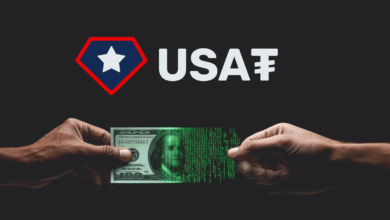Stablecoins, Deposit Tokens, and the UAE’s Next Banking Question

The UAE was among the first regulators globally to publish a clear rulebook for virtual assets, including stablecoins. One local bank-backed project is already live, licensed under the Central Bank’s payment token framework. Yet adoption remains modest, with limited market traction so far. The reasons may range from being issued on a permissioned blockchain, to limited business development push, or simply lack of market appetite at this early stage.
Meanwhile, the Central Bank is preparing to approve other stablecoin licenses for major institutions such as Zand Bank, RAK Bank, and already granted an IPA to First Abu Dhabi Bank (FAB). Global players like Paxos, Circle, and Tether are also looking at the region. The regulatory base is ready, but the question remains: who are the clients, and what is the use case that will drive volume?
Why the Digital Dirham Alone Isn’t Enough
Alongside stablecoin regulation, the UAE has advanced in rolling out its Digital Dirham (CBDC), currently positioned for wholesale use and cross-border settlement. The Central Bank has already engaged in bilateral and multilateral arrangements — including its corridor with India for dirham–rupee trade, earlier work with Saudi Arabia under Project Aber, and its participation in Project mBridge with Hong Kong, Thailand, and China under the BIS Innovation Hub. These efforts underline how the UAE is at the forefront of CBDC experimentation, building real settlement corridors with key trading partners while exploring additional agreements.
Yet the key issue remains: is a wholesale CBDC enough for a country that thrives on trade? The UAE is more than a financial center — it is a global hub for oil, gas, gold, diamonds, real estate, logistics, and re-exports. Corporates in these sectors require settlement tools that are flexible, programmable, and integrated into commercial transactions. A CBDC, by design, cannot deliver that level of private-sector adoption. Deposit tokens, issued by UAE banks, could fill this gap by embedding settlement directly into trade finance, ensuring faster and more secure flows that match the UAE’s role in global commerce.
Deposit Tokens: Banking’s Answer to Tokenization
Deposit tokens are digital representations of bank deposits issued on distributed ledger technology. Unlike stablecoins, which are often issued by fintechs or non-bank institutions, deposit tokens are fully backed and controlled by commercial banks.
Global banks are already putting this idea into practice. In June 2025, JPMorgan launched a deposit token pilot called “JPMD,” built on Base . The pilot introduces USD-denominated deposit tokens for institutional clients, designed to enable faster settlement, transparent auditability, and integrated compliance. By moving beyond closed, permissioned rails and testing a public blockchain, JPMorgan is signaling how deposit tokens can be interoperable and programmable while still retaining the backing and regulatory oversight of the banking system.
Their value lies in programmability and integration into trade finance. Imagine a UAE exporter selling oil or gold to Asia. Instead of waiting days for correspondent banking to clear, a deposit token issued by a UAE bank could be transferred instantly, settled against collateral, and programmed with compliance checks. The same logic applies to real estate transactions, shipping logistics, or even the UAE’s broader re-export economy and general B2B trade flows, not only large-scale commodities.
For a trade-heavy hub like the UAE, deposit tokens could be the missing link that CBDCs and stablecoins haven’t yet solved.
Stablecoins or Deposit Tokens: A Counter-Trend?
Stablecoins are not irrelevant. They will continue to play a role in payments, remittances, and potentially retail adoption. But the quiet performance of the first licensed stablecoin in the UAE raises doubts: was the regulatory framework fast enough, and is the market truly ready?
At the same time, global regulators — including the Bank for International Settlements — are increasingly pointing to deposit tokens as the more practical instrument for banks and corporates. If the UAE adapts its tokenization rulebooks, with some legal tweaks, it could move fast into this space and create a framework that fits the banking and trade finance needs of the UAE economy.
The UAE’s Next Banking Question
The UAE has proven it can act quickly: from launching a comprehensive VA framework, to pioneering CBDC pilots, to licensing its first stablecoin. But the next question is bigger:
- Will stablecoins, issued under payment token rules, find meaningful adoption?
- Or will deposit tokens — bank-issued, programmable, and trade-focused — be the instrument that truly reshapes settlement in the UAE?
For now, the Digital Dirham is not enough on its own. Stablecoins are still waiting for their breakout moment. CBDCs remain focused on interbank and wholesale settlement, while deposit tokens offer banks the chance to build programmable money for real trade. That positioning could make them the bridge between stablecoins and CBDCs, aligning with the UAE’s identity as a trade hub and offering banks a direct role in shaping Finance 3.0.





